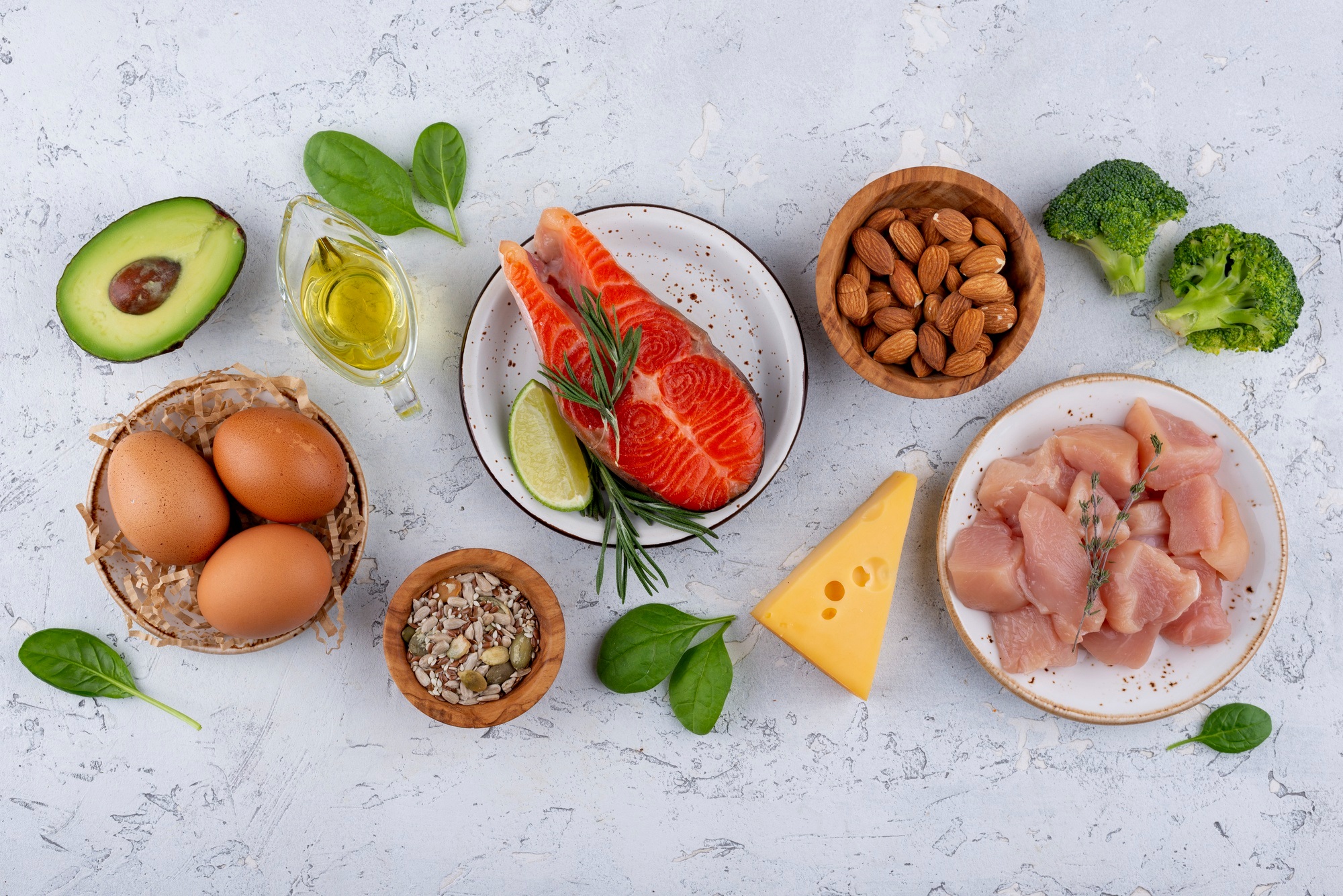🥦 The best foods that stimulate collagen production
Collagen is the most abundant protein in the human body and a major building block of skin, joints, tendons and connective tissue. As we age, its production decreases – which leads to wrinkles, slower regeneration and joint pain. The good news is that with proper nutrition we can stimulate its natural synthesis. Here are the best foods for this:
1. 🐟 Omega-3 rich fish – Salmon, mackerel and sardines
Fatty fish not only keep the skin hydrated, but also reduce inflammation that can destroy collagen. Omega-3 fatty acids play a key role in building cell membranes, including skin ones.
2. 🍊 Citrus fruits – Oranges, lemons, grapefruit
Vitamin C is an essential cofactor in the process of collagenogenesis – without it, collagen synthesis is impossible. Citrus fruits are an excellent source and also act as antioxidants, protecting the skin from free radicals.
3. 🥬 Dark green leafy vegetables – Spinach, kale, arugula
These vegetables contain chlorophyll, which according to research supports the synthesis of procollagen. They are also a rich source of vitamins A and C – other key players in collagen production.
4. 🥕 Carrots and Sweet Potatoes – Vitamin A and Beta-Carotene
Vitamin A is essential for skin repair and cell growth. Carrots and sweet potatoes are powerful allies against skin aging, as they promote cell renewal.
5. 🥚 Eggs – Especially the yolk and membrane
Eggs contain proline and glycine – two of the most important amino acids for collagen synthesis. The membrane of the shell is especially rich in collagen types I and V.
6. 🥩 Bone Broth – Pure Collagen
Bone broth contains naturally dissolved collagen, glucosamine, chondroitin and other substances that directly nourish connective tissue and skin.
7. 🫘 Legumes – Lentils, chickpeas, beans
These foods contain amino acids and copper – important elements for collagen formation. They are also a great source of plant protein for vegetarians.
8. 🍇 Fruits with Anthocyanins – Blueberries, blackberries, cherries
Anthocyanins strengthen the collagen network by preventing it from being destroyed by enzymes and oxidative stress. They also improve skin microcirculation.
9. 🥜 Nuts and seeds – Cashews, pumpkin seeds, almonds
Contain zinc and vitamin E – two trace elements that contribute to the stability and durability of collagen fibers.
✅ What to avoid?
Refined sugar – accelerates glycation, a process that damages collagen molecules.
Processed foods and trans fats – cause inflammation and accelerate collagen breakdown.
Smoking and alcohol – suppress natural collagen synthesis.
🧠 Conclusion
Stimulating natural collagen does not require expensive supplements – often the key lies on the plate. A combination of foods rich in vitamins, amino acids and antioxidants can improve the condition of the skin, joints and the entire body. Integrate these foods into your daily menu and you will enjoy a radiant appearance and better health from the inside out.
❓ Frequently Asked Questions (FAQ)
Question: How long does it take to see the effects of changing your diet?
Answer: With regular consumption of the right foods, results can be seen within 4–8 weeks.
Question: Does food replace the need for collagen supplements?
Answer: With a balanced diet, there is often no need for supplements. However, in certain conditions or age groups, supplements may have additional benefits.
Question: Can a vegan diet support collagen synthesis?
Answer: Yes, if it contains the necessary amino acids, vitamins and minerals – especially vitamin C, iron, zinc and copper.


0 Comments